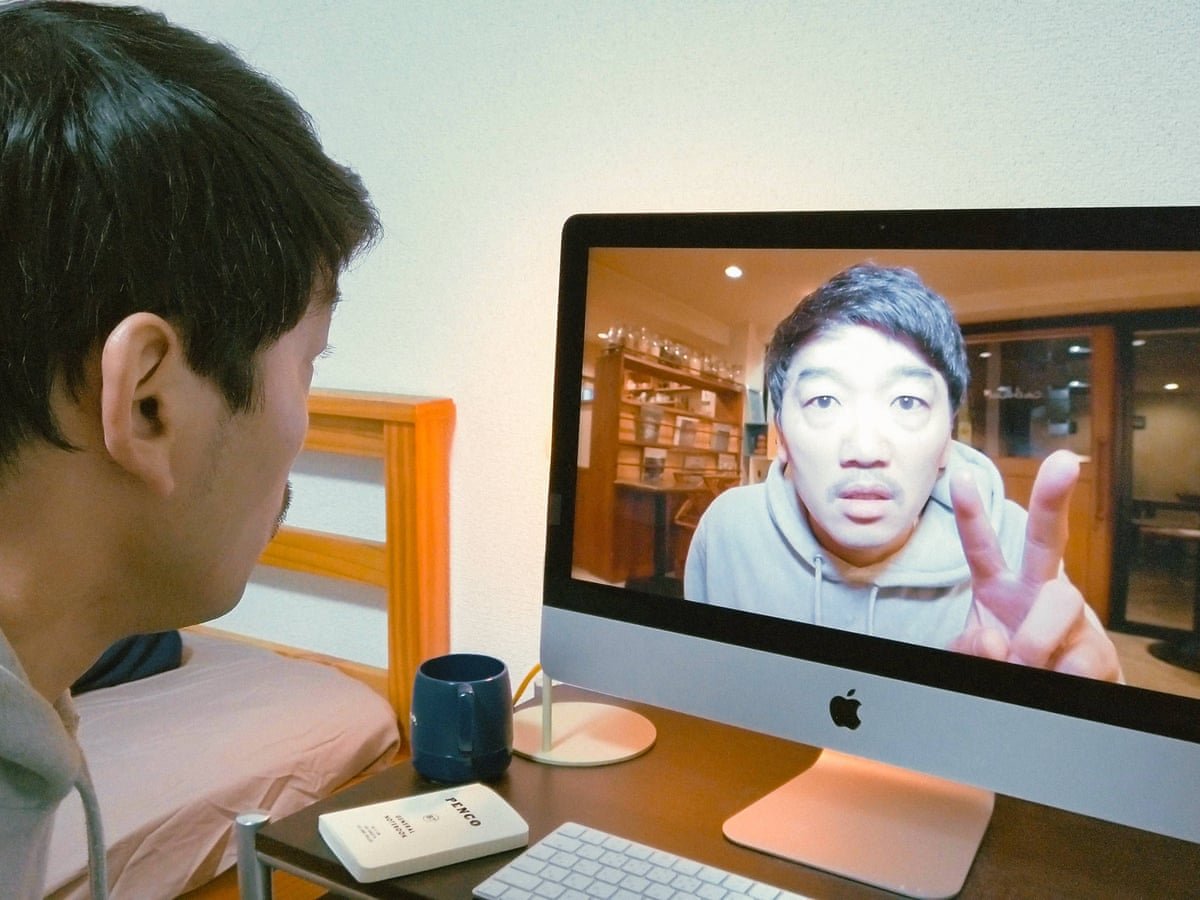Beyond The Infinite Two Minutes
For all the times you’ve pondered what you might be doing a couple of minutes from now, Beyond the Infinite Two Minutes takes that idle wondering and turns it into a fun but also surprisingly engaging cinematic affair.
Set in an unassuming café on an otherwise unremarkable night, the store owner (Kazunari Tosa) retires to his apartment a couple of floors above only to find himself appearing on his computer monitor – only it’s not the same version of him. It turns out he’s seeing and speaking to himself from two minutes in the future, with his monitor connecting with the television downstairs in the café. As his friends join in, we’re treated to escalating, and ever more exciting hijinks as they play with all the possibilities of the foresight granted by the ‘Time Television’.
The greatest strength of Beyond the Infinite Two Minutes is its cinematography. Director Junta Yamaguchi also takes on the role of cinematographer and films the movie in the continuous shot style which has grown more popular over the last several years. Using this method, the actual two minute intervals between ‘present’ and ‘future’ are laid out to the moment on screen without any obvious editing trickery to fudge the time scale. The more you think about it, the harder it is not to admire the finesse that must have gone into filming the production.
On the other hand, the more you think about it the more the central time travel(ish) premise breaks down. This is especially so as the film introduces more complicated concepts, notably the ‘Droste Effect’, though it does a commendable job of explaining the mechanics at play. Time travel is hard to make work on a technical level in fiction, so this is really only a small criticism to make, but, without spoiling anything, some of the impossibilities and paradoxes (or at least the stretches in logic) can be a little too conspicuous.
That would perhaps be a larger problem if this were a serious drama, however Beyond the Infinite Two Minutes is styled in a much more light-hearted way, and in fact it leans into the logical problems by embracing contrivance more and more as it goes on. The characters too are typically bubbly and animated, with the exception of the protagonist who is more contemplative and works to ground the movies themes of fate and agency. The script can be a bit hokey and the acting exaggerated, but it is all appropriate to the context the film places itself in.


